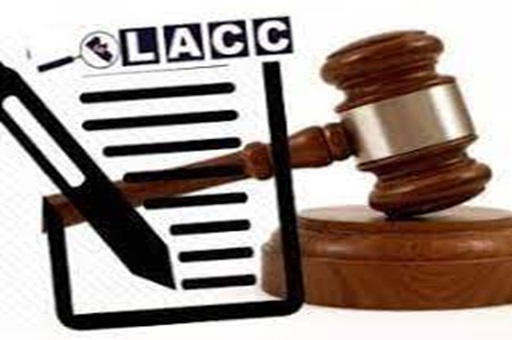MONROVIA – In a stark revelation today, the Liberia Anti-Corruption Commission (LACC) reported that over 70% of officials within the Unity Party government have yet to declare their assets, raising serious concerns about transparency and accountability in public office. This alarming finding stresses the critical need for stringent measures to enforce compliance with asset declaration laws.
According to the LACC, only 26.5% of officials across the three branches of the Liberian government have complied with the asset declaration mandate. This translates to significant non-compliance in each branch, indicating a widespread disregard for the legal requirement meant to ensure accountability and prevent corruption.
House of Representatives: Out of 73 lawmakers, only 26 have declared their assets, leaving 47 members in violation of the requirement. This substantial non-compliance rate in the House of Representatives is troubling, as it raises questions about the commitment of these lawmakers to transparency and accountability, which are foundational to their roles as public servants.
Senate: The situation is similarly troubling in the Senate, with only 12 out of 30 Senators having declared their assets. This means that 18 Senators have not complied with the asset declaration mandate. The high rate of non-compliance among Senators, who are key figures in legislative decision-making, is particularly concerning and undermines public trust in their integrity.
Executive Branch: The most significant discrepancy is within the Executive branch. Of the 1,281 public officials appointed by President Joseph Boakai, a mere 322 have declared their assets, while a staggering 959 remain non-compliant. Additionally, out of 84 officials not appointed by the President, including comptrollers and procurement officers, only a handful have declared their assets. This widespread non-compliance within the Executive branch is alarming, as it suggests a systemic issue in adhering to transparency norms at the highest levels of government.
Judiciary: The Judiciary is not exempt from these issues. Out of 333 officials, including judges and administrative staff, only 28 have declared their assets, leaving 305 in non-compliance. The judiciary’s failure to comply with asset declaration requirements is particularly disconcerting, given its role in upholding the rule of law and ensuring justice. This non-compliance could undermine the public’s confidence in the judiciary’s impartiality and integrity.
The LACC’s report suggests that the current asset declaration framework may lack the necessary enforcement mechanisms to ensure full compliance. Without effective enforcement, the asset declaration requirement becomes a mere formality, failing to achieve its intended purpose of promoting transparency and deterring corruption. This gap in enforcement underscores the need for reforms to strengthen the asset declaration process and ensure that non-compliance is met with appropriate consequences.
Moreover, the widespread non-compliance with asset declaration requirements points to a broader cultural issue within the government, where transparency and accountability may not be prioritized. To address this, there needs to be a concerted effort to cultivate a culture of integrity within public service. This could involve regular training and awareness programs for government officials, emphasizing the importance of asset declaration and its role in promoting good governance.
The LACC’s findings also highlight the need for greater public awareness and engagement in holding government officials accountable. Civil society organizations, the media, and the general public have a crucial role to play in demanding transparency and pressing for compliance with asset declaration laws. Increased public scrutiny can create pressure on non-compliant officials to adhere to their legal obligations and promote a more transparent and accountable government.
The LACC’s report reveals a troubling level of non-compliance with asset declaration requirements among Unity Party government officials, spanning all three branches of government. This widespread disregard for transparency norms undermines efforts to combat corruption and erodes public trust in Liberia’s institutions. Urgent action is needed to strengthen enforcement mechanisms, cultivate a culture of integrity within public service, and engage the public in holding officials accountable. Only through these measures can Liberia hope to promote transparency, deter corruption, and foster greater accountability in government.







